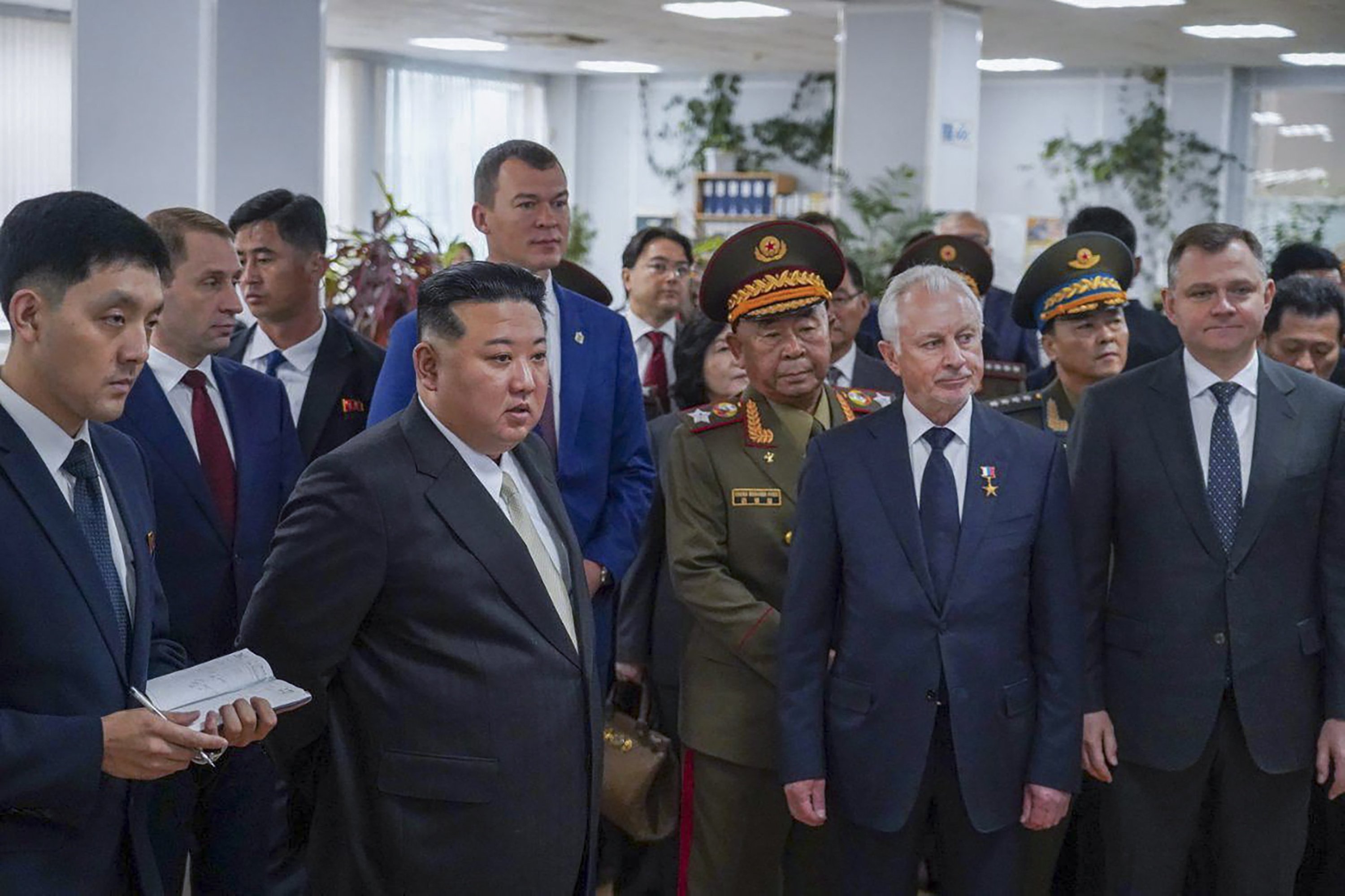© Turkuvaz Haberleşme ve Yayıncılık 2026
North Korean leader Kim Jong Un embarked on a high-profile visit to a Russian military aviation factory Friday, closely following his summit with President Vladimir Putin.
This rendezvous between the two leaders, whose respective nations are grappling with extensive global sanctions, highlights their shared pursuit of deeper bilateral ties, in defiance of Western isolation.
Russia and North Korea, once historic allies, have both been subjected to sweeping international sanctions, Moscow for its involvement in the Ukraine conflict, and Pyongyang for its persistent nuclear tests.
The rare foreign visit by Kim has raised concerns among allies of Kyiv, who fear the possibility of an arms deal materializing between the two leaders.
Notably, President Putin, who has been actively seeking to bolster alliances with leaders shunned by Western capitals, had met with Kim just days prior at a remote spaceport in Russia's far East.
While North Korea seeks Moscow's assistance in advancing its missile program, U.S. officials and experts have speculated that Russia may be interested in procuring North Korean ammunition for use in the ongoing Ukraine conflict.
Following their summit at the Vostochny cosmodrome, President Putin cryptically hinted at "possibilities" for military collaboration.
On Friday, Kim embarked on an exploratory tour, visiting military and civil aviation plants located in the far eastern city of Komsomolsk-on-Amur, a pivotal hub of Russian engineering prowess, as confirmed by Moscow's official statement.

During this visit, Kim was given an up-close look at the production of Russia's cutting-edge Sukhoi Su-35 and Su-57 fighter aircraft, even witnessing a breathtaking demonstration flight of the Su-35.
Russian Deputy Prime Minister Denis Manturov, who accompanied Kim throughout the tour, expressed optimism about potential collaborations, not just in aircraft manufacturing but also across various industries, highlighting the importance of achieving technological sovereignty for their nations.
Despite these developments, Western nations have sounded warnings to both Moscow and Pyongyang, urging restraint and emphasizing the need to adhere to global sanctions against arms deals.
Kim Jong Un's visit to Russia has been nothing short of a spectacle.
He arrived on his bullet-proof train, marking his first official overseas trip since the onset of the COVID-19 pandemic.
Departing from Pyongyang on Sunday, he crossed the shared border and has extended his stay in Russia's far east, as revealed by Kremlin spokesperson Dmitry Peskov.
In the days ahead, Kim is expected to explore further, with plans to visit the port of Vladivostok to gain insight into the capabilities of Russia's Pacific Fleet.
His entourage includes a significant military presence, and high-ranking Russian military officials played integral roles during the Putin-Kim talks.
Khabarovsk regional governor Mikhail Degtyarev, who accompanied Kim during the visit to the jet factory, shared a resolute message: "Today we stand together against the pressure of the collective West. Through joint efforts, both states will continue to defend the ideals of freedom and a multipolar world."
As Russia grapples with unprecedented isolation from the Western world due to its Ukraine offensive, President Putin appears keen on revitalizing Soviet-era alliances.
Meanwhile, the Kremlin confirmed President Putin's acceptance of Kim's invitation to visit North Korea, marking his second visit to the nation. Their meeting holds historical significance, with Putin having previously met Kim Jong-Il in Pyongyang back in July 2000, shortly after assuming the presidency of Russia.
On the international front, the White House expressed its concerns, with U.S. National Security Advisor Jake Sullivan engaging with counterparts from Japan and South Korea to discuss the Putin-Kim meeting.
The White House issued a stern statement, underscoring that any arms exports from North Korea to Russia would constitute a direct violation of multiple UN Security Council resolutions, some of which Russia itself had voted in favor of.
In a surprising twist, Japan's Chief Cabinet Secretary Hirokazu Matsuno conveyed Japan's willingness for a summit meeting with Kim "without pre-conditions," signaling a potential shift in diplomatic dynamics.
South Korean Foreign Minister Park Jin, however, cautioned that Seoul was contemplating further sanctions against both Moscow and Pyongyang should an arms deal materialize, deeming it a grave threat to peace and security on the Korean peninsula.
